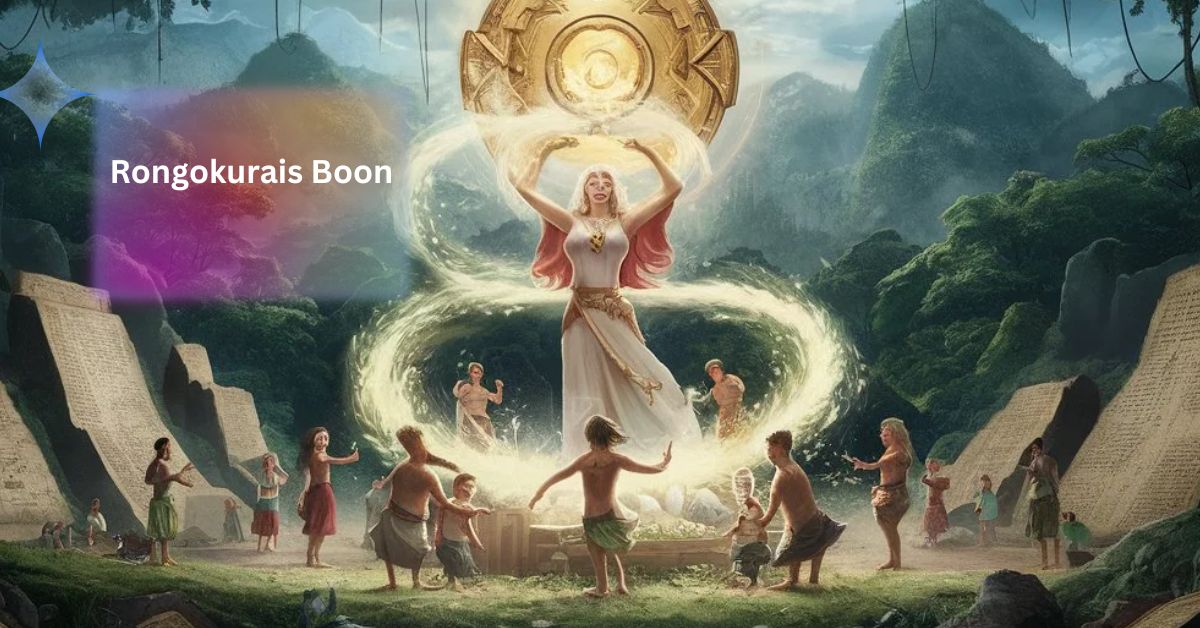Rongokurais Boon: The Ancient Path To Modern Wisdom
In the realm of spiritual practices, Rongokurais Boon emerges as a unique and profound tradition that bridges the ancient wisdom of Japan with the dynamic challenges of modern life.
Rongokurais Boon is a Japanese spiritual practice that focuses on connecting deeply with the universe through meditation, rituals, and self-reflection, promoting personal growth and enlightenment.
This article delves into the essence of Rongokurais Boon, a practice that emphasizes deep connections with the universe through meditation, rituals, and self-reflection.
What Is Rongokurais Boon:
Definition:
Rongokurais Boon is a spiritual and philosophical tradition rooted in Japanese culture, which emphasizes a holistic approach to personal and spiritual well-being. Historically, it merges elements of Shinto, Japan’s indigenous spirituality, and Buddhist principles, reflecting a blend of beliefs and practices focusing on harmony and enlightenment. This tradition is not just a set of practices but a way of life that seeks to deepen the connection between the individual and the cosmos.
Origin:
The origins of Rongokurais Boon can be traced back to ancient Japan, where it likely developed as a response to the natural environment and the existential questions posed by human life. It evolved through centuries as a spiritual path that emphasises connection and the cyclical nature of life and energy within the universe.
Core Philosophies
The core philosophies of Rongokurais Boon revolve around several fundamental tenets:
- Connection with the Universe: One of the central beliefs is that everything in existence is interconnected. Practitioners of Rongokurais Boon strive to align their energy with the natural rhythms of the cosmos to achieve a deeper understanding of themselves and their place within the universe.
- Personal Enlightenment: Enlightenment or spiritual awakening is a pivotal aspect of Rongokurais Boon. It involves transcending the ego and realising the oneness with the universe. This is achieved through mindfulness, presence, and deep meditation practices.
- Harmony and Balance: Emphasizing the importance of living in harmony with nature and the people around, Rongokurais Boon teaches that balance in one’s inner and outer life leads to health and happiness. This balance is often pursued through rituals, meditative practices, and a mindful appreciation of the natural world.
Practices And Rituals Of Rongokurais Boon:
Meditation Techniques:
Rongokurais Boon incorporates various meditation techniques designed to deepen the practitioner’s connection to the universe and foster personal enlightenment:
- Zen Meditation is a form of seated meditation that focuses on observing the breath and clearing the mind of distractions. It encourages practitioners to experience moments of silence and profound inner peace.
- Mantra Meditation: Involves the repetitive chanting of sacred words or phrases to concentrate the mind and align one’s spiritual energy with universal vibrations.
These methods promote relaxation and stress relief and enhance mindfulness, helping individuals attain a state of deeper spiritual awareness.
Purification Rituals:
Purification is a vital aspect of Rongokurais Boon, aimed at cleansing both the spirit and the physical environment:
- Misogi: This ritual typically involves the use of water for purification. Practitioners may immerse themselves in natural water bodies like rivers or waterfalls, symbsymbolizing washing away of impurities and negative energies.
- Incense Burning: Burning incense purifies the air and creates a space conducive to meditation and spiritual reflection.
These rituals renew the practitioner’s mental and spiritual focus, enabling a more straightforward path toward spiritual insight.
Symbolic Offerings:
Offerings are a significant element in Rongokurais Boon, symbsymbolizingtitude and respect for the natural world and spiritual entities:
- Food Offerings: Items such as rice, fruits, and vegetables might be placed on altars, representing thanks and sustenance given back to the earth or the spirits.
- Flower Offerings: Flowers are often used to beautify sacred spaces, symbolising beauty and the transience of life.
- Sacred Objects: Items like crystals, stones, or written prayers can be offered as a sign of devotion and a request for blessings.
The Modern Adaptation Of Rongokurais Boon:
Incorporation In Daily Life:
Integrating Rongokurais Boon into daily routines helps individuals find balance in today’s fast-paced world. Starting the day with meditation enhances focus, while simple purification rituals, like lighting incense, bring mindfulness to everyday tasks. These practices require minimal time yet offer significant benefits, making them easy to adopt for anyone seeking a more thoughtful, centred life.
Impact On Mental And Physical Health:
Regularly engaging in Rongokurais Boon’s meditative practices has proven mental and physical health benefits. Research shows that meditation reduces stress and improves symptoms of anxiety and depression. Physically, it can help lower blood pressure and enhance sleep quality, supporting overall well-being.
Community And Cultural Relevance:
Practising Rongokurais Boon also connects individuals with their community and cultural roots. Workshops and group activities provide opportunities for learning and preserving traditional practices. This cultural engagement not only sustains heritage but also strengthens communal bonds.
Comparative Analysis:
Comparison With Other Spiritual Practices:
- Mindfulness Meditation (Buddhism): Like Rongokurais Boon, Buddhism emphasises meditation but focuses more on achieving detachment from desire and the cessation of suffering. While also valuing meditation, Rongokurais Boon incorporates community rituals that strengthen social bonds and cultural continuity.
- Yoga (Hinduism) combines physical postures, meditation, and breath control to enhance spiritual and physical well-being. While it shares the meditative and health-enhancing aspects of Rongokurais Boon, yoga emphasises physical discipline as a route to spiritual enlightenment.
- Taize Prayer (Christianity): This form of Christian worship involves sung and chanted prayers, meditation, and periods of silence, aiming to foster a sense of unity with the divine. Rongokurais Boon, although not Christian, similarly uses repetitive rituals and meditative silence to foster a connection with the universe.
Unique Aspects Of Rongokurais Boon:
What sets Rongokurais Boon apart is its profound connection with nature and the universe, a concept central to its teachings and practices. The philosophy advocates personal enlightenment and a harmonic existence that resonates with natural and cosmic energies. Additionally, its rituals often involve natural elements directly, such as water in Misogi, which underscores its emphasis on purification and renewal in literal and symbolic ways. Integrating natural elements into spiritual practice helps to ground Rongokurais Boon in the physical world while reaching for higher spiritual understanding.
Personal Stories And Community Impact Of Rongokurais Boon:
Testimonials:
Practitioners often share how Rongokurais Boon has transformed their lives. For example, Yuki Sato found that daily meditation eased her work stress, while Hiroshi Tanaka felt renewed after participating in a Misogi ritual during a difficult time.
Community Benefits:
Rongokurais Boon strengthens community ties through shared rituals and gatherings. These practices connect generations, promote environmental respect, and help preserve cultural traditions, enriching individual lives and the broader community.
Conclusion:
Rongokurais Boon offers a meaningful blend of ancient wisdom and modern relevance. Focusing on harmony, personal growth, and a deep connection with the universe provides a path to enlightenment that resonates today. Through its practices and community focus, Rongokurais Boon enriches individual lives and cultural heritage, making it a valuable tradition in the contemporary world.
FAQ’s:
1. Is Rongokurais Boon A Religion?
Rongokurais Boon is not a formal religion but a spiritual and philosophical practice rooted in Japanese culture. It incorporates elements of Shinto and Buddhism, focusing on personal growth, harmony, and connection with the universe.
2. Can Anyone Practice Rongokurais Boon, Or Is It Limited To Those Of Japanese Heritage?
Rongokurais Boon is accessible to anyone interested in its teachings, regardless of cultural background. While it is deeply connected to Japanese traditions, its principles and practices can be adapted and appreciated by people from diverse backgrounds.
3. How Can I Start Practicing Rongokurais Boon?
Beginners can start with simple meditation techniques and purification rituals, like lighting incense or practising mindfulness. Reading about its core philosophies and gradually incorporating its practices into daily life can also be a good start.
4. Do I Need To Follow All The Rituals Strictly To Benefit From Rongokurais Boon?
While traditional rituals are essential, the essence of Rongokurais Boon lies in the intention and connection with the universe. Practitioners can adapt the rituals to fit their lifestyle, focusing on the core principles of harmony, mindfulness, and personal growth.
5. What Is The Role Of Nature In Rongokurais Boon?
Nature plays a central role in Rongokurais Boon, symbsymbolizingity, renewal, and the interconnectedness of all things. Many rituals involve natural elements like water, incense, and flowers, reflecting the practice’s deep respect for the environment.
6. Is Rongokurais Boon Similar To Other Meditation Practices?
Rongokurais Boon shares similarities with other meditation practices, such as mindfulness in Buddhism. Still, it uniquely integrates meditation with rituals and strongly emphasises nature and the cosmos.
7. Can Rongokurais Boon Help With Stress And Anxiety?
Yes, the meditative practices and rituals of Rongokurais Boon can help reduce stress and anxiety by promoting mindfulness, inner peace, and a sense of connection with the universe.






